Qingdao’s rich colonial past and rapid economic development make for a worthwhile visit.

In a visit during the 1980s, when China was first opening its doors to the outside world under its reform policy, travel writer Paul Theroux found the city of Qingdao had an “irrational, dreamlike quality”He felt uncomfortable in a non-European city filled with European architecture, a stately Lutheran church abutting a noodle stall. Today, many areas in the city still preserve architectural styles from the German colonial period: Baroque, Byzantine, Eclectic, Gothic, Jugendstil (Art Nouveau) and Romanesque buildings abound.
Although Western colonialism in China more commonly brings to mind British Hong Kong, Portuguese Macau or Shanghai’s French Concession, Qingdao was actually the first European colony fully located on the Chinese mainland. Theroux was sharply critical of the colonial powers – “imperialists”, he called them – that had come to Qingdao, criticising the “fat and monumental” buildings constructed “whether they fit the place or not”.
At one point in history, at least, the Chinese government seemed to share Theroux’s view. Red Guards, those members of the student paramilitary social movement mobilised by Mao Zedong during the Cultural Revolution, partially destroyed the city’s St Michael’s Cathedral, including its 2,400-pipe organ that was one of the two biggest in Asia, according to state-owned newspaper China Daily. In April 2008, the Qingdao Diocese ordered a new one from Germany with similar capacity.
MARITIME HUB
Qingdao is now an international port city and a maritime hub in northeast Asia, benefiting from its strategic geographic location. The city trades with over 450 ports in more than 130 countries or regions around the world, according to World Port Source.
This story is from the February 2019 edition of Business Traveller Middle East.
Start your 7-day Magzter GOLD free trial to access thousands of curated premium stories, and 9,000+ magazines and newspapers.
Already a subscriber ? Sign In
This story is from the February 2019 edition of Business Traveller Middle East.
Start your 7-day Magzter GOLD free trial to access thousands of curated premium stories, and 9,000+ magazines and newspapers.
Already a subscriber? Sign In
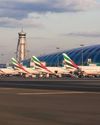
Onwards and upwards
In an exclusive interview with Ian Fairservice for Business Traveller, His Highness Sheikh Ahmed bin Saeed Al Maktoum, President of the Dubai Civil Aviation Authority and CEO and Founder of the Emirates Group, provides insight into the current and future state of travel and Emirates’ pivotal role in getting the industry back on track

Cleaning up the crisis
How hotels have risen to the challenge of keeping guests safe during the pandemic
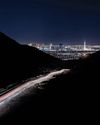
The Great Vegas Meetings Magic Act
The city is working hard to conjure up events and make millions of visitors reappear
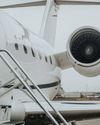
TAKES OFF
Corporations are seeking new travel solutions that put safety and convenience first
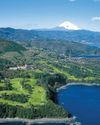
TEE TIME IN TOKYO
The Tokyo Olympics may be delayed, but the golf courses around Japan’s capital aren’t slowing down
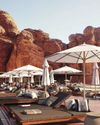
KEYS TO THE KINGDOM
New and upcoming hotels to check out when you next visit Saudi Arabia
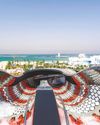
QATAR CALLING
A swathe of hotels are opening in the Gulf State in the run-up to the 2022 FIFA World Cup
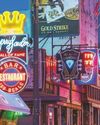
MEMPHIS CON BRIO
Music and history flood through the heart and soul of this quintessential American river town

Sofitel Mumbai BKC
BACKGROUND Sofitel Mumbai BKC is one of Accor’s most prominent addresses in Mumbai, Maharashtra. The French hospitality group’s other hotels in the city are operated under the Novotel and ibis brands.

Taking Scotland in Stride
A walk through the Highlands and Borders is the best way to touch this country’s history and nature